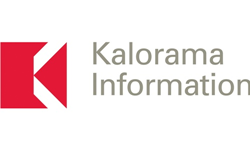
The digital systems are finding more and more customers — the growth we project is that the market doubles in seven years.
ARLINGTON, Va. (PRWEB)
August 03, 2020
A new report from market research firm Kalorama Information finds that digital pathology market is 710 million in 2020 and will grow 11.5% each year in the foreseeable future, driven by increasing acceptance of digital systems. The report says the COVID-19 pandemic, while disrupting healthcare in general, also provides a selling point as many pathologists are now at home and need to work digitally. Kalorama Information’s recent study Digital Pathology Markets, 2020-2025, finds a vibrant market that is pushed by the need for faster cancer detection and the enhancements that IT systems, including artificial intelligence solutions provide.
“Glass slides will never become obsolete,” said Bruce Carlson, Kalorama Information’s Publisher. “Pathology starts with a collected tissue that is treated and then placed on a slide. Therefore, glass slides are necessary, even if they are later transferred to a digital scan. “
But the day-to-day work is changing. Automated sample processing and slide strainers have been available for some 10 to 15 years, however end to end automation, digital optics and the artificial intelligence algorithms and high capacity computer power necessary to really make these systems work efficiently have only recently become available. But this histology slide analysis is highly labor intensive and subjective in nature. For at least the past 100-150 years, technologists and pathologists have used a traditional microscope to study tissue slides to diagnose cancer and other diseases. At least this was the scenario until the commercialization of automated image capture and digital image analysis.
“The digital systems are finding more and more customers — the growth we project is that the market doubles in seven years,” Carlson said.
Leica Biosystems is a leader in this space and its products are used in hospital and reference labs, academic medical centers, and biopharma institutions, worldwide. Roche is a top competitor as well. Ten years ago, Roche reinforced its digital pathology business with the acquisition of a competitor that was integrated into Roche’s Ventana Medical business. Roche recently announced the CE-IVD uPath PD-L1 automatic digital pathology product for non-small cell lung cancer (NSCLC).
Applied Spectral Imaging markets PathFusion, a digital pathology solution that combines whole slide imaging, digital FISH analysis and unique digital tissue matching of FISH with H&E/IHC samples. The company reports it has over 3,000 systems installed worldwide.
Visiopharm (Denmark) has been pioneering AI-driven digital precision pathology software since 2001. It works with a number of companies, but the company has recently forged an alliance with Agilent Technologies whereby the companies will co-market Visiopharm’s portfolio of artificial intelligence-driven pathology solutions.
Other companies include Glencoe Systems, Sectra, Epredia and Sunquest. These companies offer a variety of scanner hardware, storage and workflow software solutions and algorithmic based interpretation tools.
The COVID-19 pandemic has had a surprising impact for histology and digital pathology. The pandemic has curtailed all but the most serious surgeries and cancer treatments. Thus an histology lab is receiving the most difficult of tissue samples to process. There is also a workforce shortage of pathologists, with more pathologists retiring than those entering the field and with physical distancing many pathologists are staying out of the lab. At the same time, new rules allow greater use of digital pathology as well as the reading of the test results from remote locations as long as the test was first performed in an authorized CLIA laboratory.
About Kalorama Information:
Kalorama Information, part of Science and Medicine Group, is the leading publisher of market research in healthcare areas, including in vitro diagnostics (IVD), biotechnology, healthcare, medical devices, and pharmaceuticals. Science and Medicine Group supports companies seeking to commercialize the rapidly changing marketplace at the intersection of science, medicine, and technology. Comprised of industry-leading brands, Science and Medicine Group serves analytical instrument, life science, imaging, and clinical diagnostic companies by helping them create strategies and products to win markets and provide platforms to digitally engage their markets through a variety of innovative solutions. Kalorama Information produces 30 reports a year. The firm offers a Knowledge Center, which provides access to all published reports.
Share article on social media or email:

